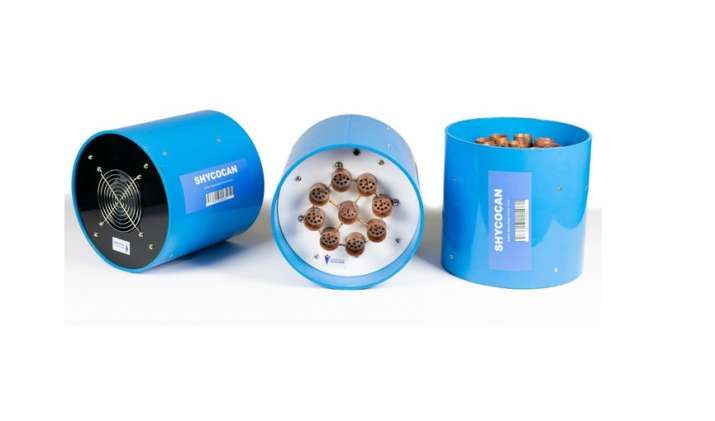Experts have officially confirmed that as many as 102 unfired rockets found in an open well at a farmhouse in Nagara village, Hosanagar taluk in Shivamogga district belonged to the era of Tipu Sultan, the visionary South Indian ruler.
The rockets used by the glorious Mysuru kingdom during the Anglo-Mysuru wars, especially in the last two of them during the reign of Tipu Sultan, are considered the most-advanced of their age. Only five known specimens of the rockets were known to be in existence till now; three in the Government Museum in Bengaluru and two in the Royal Armoury, Woolwich, UK.
The rockets recently discovered were being studied outside of public glare for a few months now. R Shejeshwara Nayak, Assistant Director of the Department of Archaeology, Museums and Heritage, confirmed that 102 unused rockets were found in varying sizes in April 2017, during the de-silting of an open well on land belonging to Nagaraja Rao, a farmer from Nagara village. The farmer had handed over these objects to the department for study.
The distinctive feature of the rockets is that they are filled with black powder (a mixture of sulphur, charcoal, and potassium nitrate) and encased in iron. They are seven to 10 inches long and 1 to 3 inches in diameter. “The rockets were corroded owing to continuous exposure to water,” he said.
These objects were studied by a group of history experts, and they concluded that these items were unused war rockets belonging to the 18th century. As Nagara was an important administrative centre of the Mysuru state, and Tipu had established a mint and armoury here, they concluded that the rockets belonged to the Tipu Sultan period. Mr. Shejeshwara said that after the fourth Anglo-Mysuru War, there was the chance that Tipu’s army, stationed in Nagara, could have dumped the rockets in the well to prevent them from getting into the hands of the East India Company.
Both Hyder Ali and Tipu Sultan had used rockets in the wars they fought against the East India Company.“Rockets have been used in battles for 700 years. But it was only in Mysore, under Hyder Ali, that iron casings were first used. Before that, rockets had wooden or paper casings. The iron casings drastically improved their efficiency and range. Mysore rockets were the most advanced ones during the second half of the 18th Century,” Mr Shejeshwara said.
Mr Shejeshwara said after the 4th Anglo-Mysore war, rockets in Tipu’s armoury were taken to The Royal Arsenal, Woolwich, in England. Inspired by the Mysorean rockets, the Congreve rockets were developed by Sir William Congreve and were used by the British in the Napoleonic wars. The rockets are now kept in the museum of the department for further research.






Comments
Some maron like yoge & unknow are jealous about tippu that he is been muslim.
common man respect the freedom fighter. muslim are only people in indian who dare to protect the county from traitor like godse, modi & some mangalorean maron hindus.
if real fight brokeout number of dog is nothing in front of lion, this proved in past history
Why experts wasting money to excavate usless things and protecting those things. Use that effort to development
Who cares traitor's missile. Should not protect those things. Should throw it in sea
Give to Siddu. He is one of hardcore fan of traitor Tipu Sultan
Add new comment